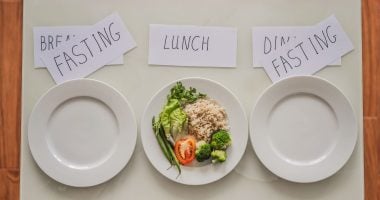The Dukan Diet has recently grown in popularity and been tried some people with diabetes.
Developed over a decade ago by Pierre Duka, a French nutritionist and medical doctor, the Dukan Diet is used by as many as 1.5 million people in France, not to mention celebrities around the world.
The English version of The Dukan Diet quickly rose to the top of the Amazon diet book list and received widespread media attention.
What is the Dukan Diet?
The Dukan Diet is based around eating foods high in protein and limiting carbohydrate consumption, including all fruit, starchy vegetables, legumes (such as beans, peas, lentils, soy and peanuts), and whole grains.
The emphasis on foods to eat includes fish, poultry and dairy products with reduced-fat.
So that’s all the Dukan Diet is?
Not quite. Dukan dieters follow phases, expecting to lose between seven and ten pounds in the first five days.
- During the first ten-day phase, people on the Dukan Diet eat protein foods seasoned with condiments, but with no fat or carbohydrates
- Calorie-free drinks are also permitted, as is 1.5 tablespoons of oatmeal.
- The second phase (cruise) alternates days of protein with days of vegetables with no starch. Vegetables can be eaten raw, steamed, in soups or stews. This phase is followed until target weight is hit.
- The third phase (consolidation) starts once you have reached goal weight, and includes one portion of fruit and two slices of whole-grain bread per day, with one extra serving of carbs per week.
- The final phase you go back to eating what you like, following consolidation phase rules, with one day a week eating only protein.
So what foods are recommended for Dukan Dieters?
Dukan diet foods include:
- lean beef
- lean ham
- rabbit
- veal
- chicken liver
- chicken breast
- turkey
- fish
- seafood
- fat-free yoghurt
- low-fat cottage cheese
- skimmed milk
- egg whites
- tofu
- seitan
- green vegetables
- onions
- herbs and spices
- mustard
- sugar-free ketchup
- oat bran
- coffee
- tea
- diet soda
- Stevia
- Silverspoon Sweetener
- sugar-free chewing gum
So, do I have to stop exercise on the Dukan Diet?
The Dukan Diet stipulates regular exercise People on the Dukan diet must walk briefly for twenty minutes per day during phase one, and thirty minutes per day in phase two.
How much does it cost to follow the Dukan Diet?
The UK book ‘The Dukan Diet’ retails for £12.99. The additional costs are maintaining the food demands of the diet.
What are the advantages of The Dukan Diet?
- Fast weight loss can boost motivation
- No need to count calories
- Possible for vegetarians
- Defined meal plan with recipes
- Celebration meals in final phases may improve adherence to the diet
What are the disadvantages of The Dukan Diet?
- The diet is restrictive and eliminates certain healthy foods
- Some dieters may not respond well to low carbohydrate diets, this can cause tiredness and fluctuating moods
- The diet can be boring
- Dieters may experience constipatio, headaches and bad breath due to high protein
- The diet is not suitable for those with high cholesterol, kidney disease, eating disorders, gout
Is the Dukan Diet suitable and recommended for people with diabetes?
People with diabetes are recommended to consult their health team before embarking on a significant change to their current diet.
A new diet could have implications on your medication doses and, in some cases for the type of medication you take.
As referred to above, the diet is not suitable for people with certain conditions which are quite commonly associated with diabetes: high cholesterol, kidney damage and gout.
Restricting certain foods may also mean that intake of certain vitamins may be reduced.
The initial carbohydrate restriction is quite strict and could be difficult for people to keep within.
Furthermore, the latter parts of the diet may involve taking on more carbohydrates than some people may be comfortable with.
It is advisable to discuss how the diet could be best adapted to your own requirements with a dietitian who is aware of your medical history.








